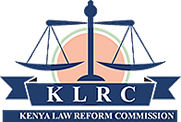 Download Press Release: Launch of the Guide to the Legislative Process in Kenya in PDF (68KB)
Download Press Release: Launch of the Guide to the Legislative Process in Kenya in PDF (68KB)
Theme: “Effective Legislation is the Cornerstone of Constitutionalism”
NAIROBI KENYA: Today, Friday, August 28th, 2015: The Kenya Law Reform Commission launched the Guide to the Legislative Process in Kenya at the Kenyatta International Convention Center, Nairobi. The launch was graced by the Hon. Attorney General Prof. Githu Muigai and the Cabinet Secretary Ministry of Devolution and Planning Hon. Anne Waiguru among other high esteemed guests.
CONSTITUTIONAL CONTEXT OF GUIDE
The Guide to the Legislative Process in Kenya seeks to address key concerns in the legislative processes at National and County levels of government. Our Constitution heralded various changes in the legislative process in Kenya. Among these are: a Bicameral Parliament consisting of the National Assembly and the Senate; creation of 47 County Assemblies in each of the 47 counties; and the requirement of mandatory public participation in policy making and legislation. The commission having assessed the complexity of the legislative process especially at the county level, formulated in consultation with other key stakeholders the guide to the legislative process in Kenya to assist demystify and ease the appreciation of key principles necessary in the legislative process.
The guide is timely and published at the 5th anniversary of the promulgation of the Constitution of Kenya 2010 and premised on the understanding that “Effective Legislation is the Cornerstone of Constitutionalism”. The Guide comprehensively consolidates the key procedural and substantive facets of law making in Kenya at both levels of government. It also gives steps to guarantee keen observance of best practices and to ensure that the process of making legislation is flawless and that such law can stand the test of constitutionality.
OBJECTIVES:
The guide seeks to:
- Enhance the effective development of legislation at both levels of government and streamline uptake of devolved functions and delivery of services to the people of Kenya;
- Equip the key players (policy makers, legislative drafters and legislators) at both levels of government with the necessary tools to improve not only the policy formulation and law making processes but also the quality of such policy and legislation;
- Arm the people of Kenya with the knowledge of the core procedures and substance of law-making to enable them meaningfully engage as the primary stakeholders.
KEY HIGHLIGHTS:
Some of the critical issues addressed include: policy preceding legislation, public participation in legislation processes, inclusivity in stakeholder engagement and enactment of development conscious legislation towards the achievement of social, economic and political development pillars in Kenya's Vision 2030.
i) Conflict of law (national and county governments);
The guide provides mechanisms for players engaged in the legislative process to respect and uphold the relevant provisions of the Constitution on functional assignment (s) in order to avoid potential conflict of laws at both levels of government.
ii) Policy parameters (policy precedes law);
The ideal and recommended position in the legislative process is that policy precedes the formulation of a Bill or any other legislative instrument.
iii) Statutory harmony;
The guide emphasizes that persons/institutions engaged in the legislative process need to undertake detailed research to establish amongst other relevant issues whether a legislative proposal before them has previously been legislated, who or which entity is or has been responsible for its execution, which other existing legal framework can be modified, amended or repealed to allow for the situation at hand to be redressed, and which other mechanism other than a legislative measure can be employed to deal with the matter.
iv) Public participation;
The guide provides parameters for effective public participation and consultation in law reform processes based on principles of good governance: openness, transparency, integrity, inclusivity, and mutual respect.
v) Cost-benefit analysis.
The guide presupposes and is alive to the fact that legal reform process has to be administered with financial prudence and economic sense while giving value for resources utilized in a sustainable manner. It recommends the undertaking of a cost-benefit analysis of a proposed piece of legislation to determine if benefits outweigh the costs before commencement of the processes.
PARTICIPATING INSTITUTIONS
This publication is an initiative of the Kenya Law Reform Commission, Office of the Attorney General and Department of Justice, Ministry of Devolution and Planning, Commission for Implementation of the Constitution, Council of Governors, County Speakers Forum, The National Assembly, The Senate, Commission on Administrative Justice, Transition Authority, Law Society of Kenya, County Assemblies Forum, County Attorneys Forum, and the Kenya Institute for Public Policy Research and Analysis. The commission also acknowledges support from the development partners: USAID AHADI (Agile and Harmonized Assistance for Devolved Institutions) and the International Development Law Organization (IDLO).
ABOUT THE KENYA LAW REFORM COMMISSION
The Kenya Law Reform Commission (KLRC) is established by the Kenya Law Reform Commission Act, 2013 (No. 19 of 2013) as a successor to the Law Reform Commission, previously established under the repealed Law Reform Commission Act, Cap 3. The Commission is a body corporate with perpetual succession, which serves both National and County governments in matters of law reform. KLRC’s mission is to facilitate law reform conducive to social, economic and political development by keeping under review all the law of Kenya to ensure their systematic development and reform in conformity with the Constitution of Kenya 2010 (CoK 2010).
WAY FORWARD
The Commission in partnership with stakeholders plans to enhance law reform knowledge in Kenya by subjecting the Guide to the Legislative Process in Kenya to wide public education and dissemination across the 47 counties.
Chairman,
Kenya Law Reform Commission
Media contact: Jacob Otachi, Tel: +254 729-57-37-19/ Email:
